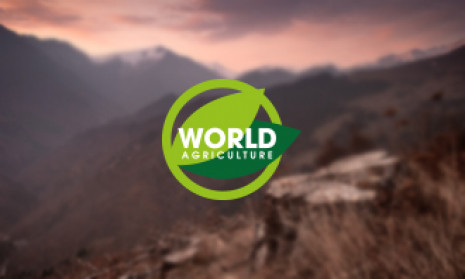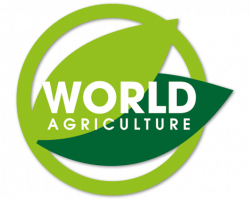Book and report reviews - The Hay on Wye Literary Festival, 2011

The Hay on Wye Literary Festival, 2011
The festival is an annual event held in late spring. This year the main sponsor was the Daily Telegraph, a leading UK newspaper. The festival format allows presentation and discussion of a wide range of topics from historical, social and financial events to books and literature.
In recent years there has been an increasing level of interest in how and where our food is produced. To reflect these trends, in 2011, the Festival organisers included topics on food production and public concerns about the use of certain agricultural prac- tices, such as the debate, chaired by the Daily Telegraph's environment correspondent Louise Gray, on GM crops. There has also been a series of farm walks, which were frequently over sub- scribed, and well attended by people who have no experience of agricul- ture.
World Agriculture was represented in a panel discussion supported by R M Jones, a Hay on Wye agricultural mer- chant and veterinary distributor. The panel comprised three members of the editorial board of World Agriculture (Professor Sir Colin Spedding, Professor Denis Murphy and Dr Christie Peacock) and Rosie Boycott, Chairman of the London Food Commission. The aim was to explore the primary issues around food securi- ty and the challenges associated with meeting mankind’s need for food and living space, without destroying the environment.
The event was attended by about 400 people. Each of the speakers out- lined their expertise and views on how appropriate technology and production methods can influence and support more sustainable food production throughout the world. The session was ably chaired by Jonathon Harrington, who also organised the debate. The common theme of the speakers was the need to exploit appropriate technology while involv- ing society in novel approaches to food production. Ideas were well pre-
sented to be readily understood, by the audience and all who seek a better understanding of the pressures and opportunities that face us all, wherever we live.
Questions and discussion from the floor raised many issues including those of agricultural biotechnology, production methods, oil and fertiliser resource depletion, food distribution and infrastructure. In less developed parts of the world such as Africa, the need to enable poor farming families to generate additional income, from the sale of surplus production, was recognized as a way to improve life standards.
A number of excellent questions were asked from the floor. Concerns about genetic engineering of crop plant were raised by many and it was clear there was antagonism, not only to the technology but also the way it is perceived to be exploited. Some of these views were at variance with the panel specialists, who said that appro- priate plant techniques would facilitate improved use of natural resources, reduce pesticide use and allow for more efficient production systems for food and energy crops.
The key challenge of increasing food and biofuel production without destroying the environment seemed to pass some of the audience by. Following this debate it is clear that potential solutions to these challenges are largely unrecognised. The facts are not generally understood by many citizens, while others reject new tech- nologies. The reasons are complex.
In part this may be because man has evolved to suspect and sometimes reject new information, especially when it has been generated outside the defined social group. There are sound evolutionary and societal rea- sons why this may be the case, but these do not help us solve the prob- lems.
We have a rapidly increasing popula- tion demanding high quality food, which needs an increased area for pro- duction. In addition there are increas- ing needs for housing and infrastruc- ture. Increasing wealth allows more opportunity for leisure. That creates
an associated demand for and exploitation of wilderness areas in which people can relax and enjoy the natural environment. The challenge of global agriculture is to meet these conflicting needs without increasing the land area under cultivation. This requires an increase in output per unit area without further degradation of the environment; effectively we must increase the area of land available for wildlife both in the farmed and unfarmed environment. This has to be achieved whilst preventing further destruction of habitat and species loss.
These primary concerns were obvi- ously behind many of the questions from the floor. They define the prob- lem agriculture has throughout the world. We have a lot of information which will help the industry become more environmentally benign and reduce adverse effects on the environment. Appropriate and relevant infor- mation must be applied to production systems to improve habitat and biodi- versity management.
Clearly, there is a need for open minds and consideration of how best to exploit the available technologies and to base these developments on sound science. That requires good quality research, where it is necessary, and for the results to be articulated precisely in a comprehensible way.
The potential benefits and disadvan- tages of new technologies must be identified and the problems min- imised. It is urgent and essential that both the agricultural industry and soci- ety recognize they both have responsibilities to ensure this happens - it needs not just mutual respect and good communications, but also for results of good quality research to be respected and sound evidence accept- ed.
The editorial team of World Agriculture believe that the journal has a key role to play in identifying the problems and presenting and explaining potential solutions. This must be done in a manner that can be readily understood by all those who seek to gain a better understanding of the pressures and opportunities that face us all, wherever we live.
Download pdf
